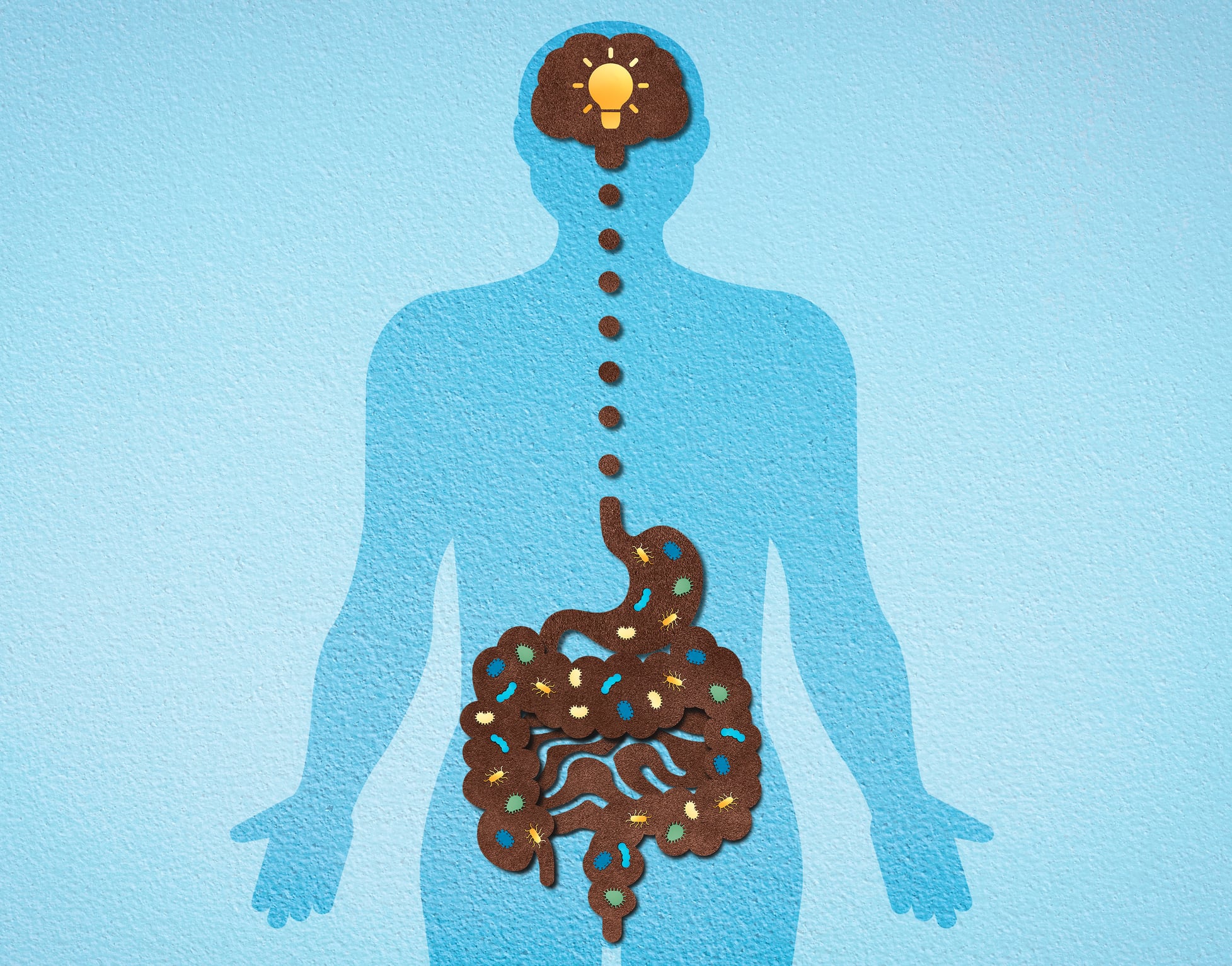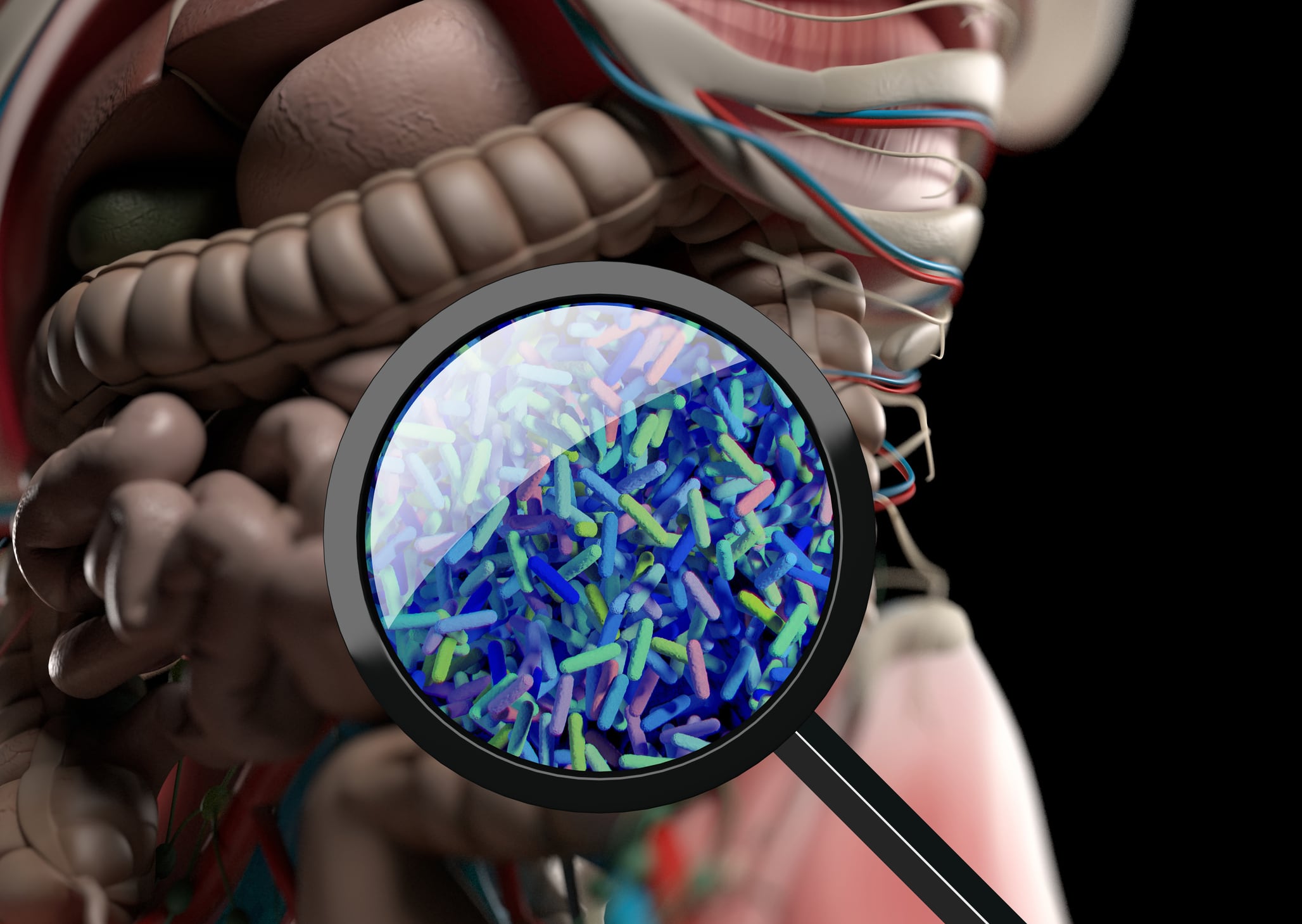Dysosmobacter welbionis J115T may blunt the stress response in female mice fed a high-fat diet, according to researchers from the Catholic University of Louvain and Walloon Excellence in Life Sciences and BIOtechnology (WELBIO) in Belgium.
Mice in the D. welbionis J115T group also had smaller increases in levels of the stress hormone corticosterone, they reported in Beneficial Microbes.
“These findings highlight sex-specific behavioral and molecular responses to dietary and probiotic interventions and suggest that D. welbionis J115T may modulate stress-related behaviors in female mice via the gut-brain axis,” they wrote.
Gut microbiota and the link to obesity
A link between the gut microbiota and obesity was first reported in 2006 by Jeffrey Gordon and his group at Washington University in St. Louis, who found that microbial populations in the gut are different between obese and lean people, and that when the obese people lost weight, their microflora reverted back to that observed in a lean person. This suggested that obesity has a microbial component (Nature, Vol. 444, pp. 1022-1023, 1027-1031).
This has led many research groups to explore if probiotics may help manage weight. A probiotic is defined as a “live microorganisms which when administered in adequate amounts confer a health benefit on the host” – FAO/WHO.
One of the emerging strains with promise is Dysosmobacter welbionis J115T. The discovery of this strain was first reported by the research team at the Catholic University of Louvain in 2020 in a paper in the International Journal of Systematic and Evolutionary Microbiology.
D. welbionis J115T is found in up to 70% of the healthy population, corresponding author Prof. Patrice Cani told NutraIngredients at Probiota in Copenhagen in 2022, but people with obesity or diabetes have low abundance of the bacterium.
The Louvain-based scientists subsequently reported in the journal Gut in 2021 that daily administration of live D. welbionis J115T could blunt the high-fat diet induced metabolic disorders in lab mice. The strain appeared to be acting on both white and brown adipose tissue metabolism.
On the other hand, the genus of Dysosmobacter was recently identified as a gut bacterial biomarker of major depressive disorder patients (MDD). Since stress and obesity may both contribute to depression, the researchers investigated how D. welbionis J115 T may impact depression in stressed mice fed a high-fat diet.
Study details
The researchers focused on female mice because they display more “a more pronounced depressive-like phenotype than their male counterparts”, but they did include male mice as comparisons. Altogether, the lab mice were divided into six groups: Four female mice groups and two male mice groups. The female mice were divided into two groups: One fed a high-fat diet and one fed a control diet. These groups were further divided into two, with half of the high-fat group and half of the control diet group receiving D. welbionis J115 T. Male mice were all fed the control diet with half also receiving the bacterial strain.
The results showed that while females fed the high-fat diet did gain more body weight and fat mass compared to the control diet, D. welbionis J115 T supplementation did not significantly impact these measures.
The high-fat fed mice did exhibit stress/anxiety-like characteristics, particularly in the elevated plus maze and forced swim test, and these effects were reduced by D. welbionis J115 T. Moreover, these mice displayed increased exploratory behavior and were more active than the non-supplemented high-fat diet animals.
Commenting on the potential mechanism of action, the researchers noted that the potential benefits of D. welbionis J115T may be mediated via the gut-brain axis and involve the production of anti-inflammatory short-chain fatty acids (SCFAs) such as butyrate.
Increases in levels of brain-derived neurotrophic factor (BDNF) were also observed for the D. welbionis J115 T-supplemented mice in the high-fat group.
“While causality cannot be inferred, this alignment raises the possibility that the anxiolytic- and antidepressant-like effects of D. welbionis J115T may, at least in part, be mediated through the upregulation of BDNF in the brain,” they wrote.
“Our data do not support a causal role for increased D. welbionis in promoting depressive-like behavior, contradicting what might be inferred from biomarker-based studies,” wrote the researchers. “These data are rather aligned with previously reported antidepressant effects of butyrate producing bacteria.”
Source: Beneficial Microbes, doi: 10.1163/18762891-bja00091, “Dysosmobacter welbionis J115T reduces stress-like phenotype in high-fat diet-induced obese female mice”, Authors: G.C. Wong, et al.





